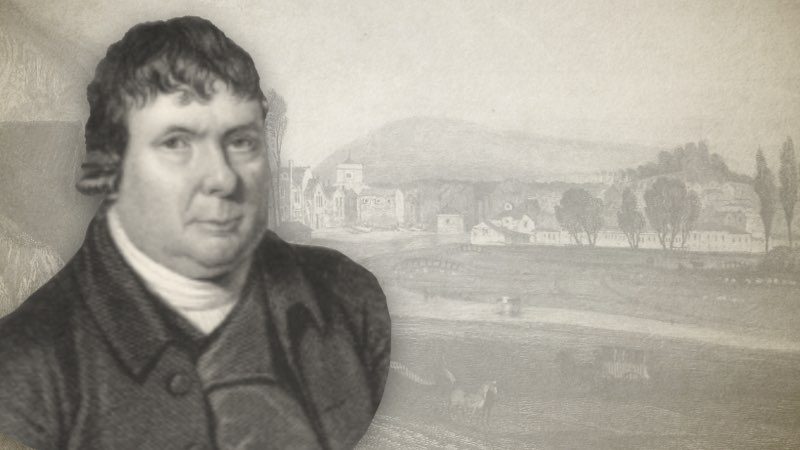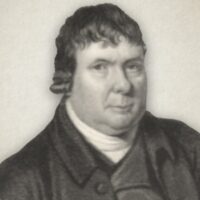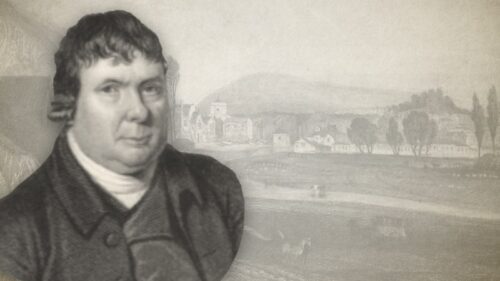
The Child of Liberty in Legal Bondage: Darkness (1/11)
I come now to treat of this spirit of bondage, and the workings of it; and, when I have so done, shall appeal to the experience of all real believers; and I verily think that, where the redoubtable Mr. Hector has one believer’s voice against it, I shall have an hundred for it, because I know that God’s saints are in the path of tribulation, where Hector never was. In discoursing on the operation of this spirit of bondage, I shall
1. Treat of the darkness that attends it.
2. Of servile or slavish fear.
3. Of narrowness and contraction.
4. Of wrath and sensible anger.
5. Of suspicion and cruel jealousy.
6. Of rebellion and discontent.
7. Of despondency and desperation.
8. Of sensible dryness and barrenness.
9. Of backwardness and reluctance to all good.
10. Of legal striving against sin and corruption.
11. And of the miserable success of such labour.
But the law, when reflected on the mind of man, is blackness and darkness; and the spirit of it is vindictive vengeance, and nothing else, which genders to bondage, and works wrath, fear, torment, jealousy, death, and eternal damnation. And, that we may know the difference of the one covenant from the other, the preciousness of the glorious gospel, and the invaluable worth of that “life and immortality brought to light” by it; that we may see and feel the need of Christ, and know how to prize him; that we may know the sad state of them that are out of him, and the blessed state of those that are in him; and be grateful to God for that free sovereign, and discriminating grace that has made us to differ. We are often exercised with the darkness of this mount, and it is a darkness that may be felt; and those professors that deny this, are in a worse darkness; for Satan keeps them ignorant of themselves, of God, of Christ, and of the law; from which ignorance the light of the gospel has delivered every real believer; and God is the everlasting light of him, and his “son shall no more go down.” But it not said that his sun shall never be eclipsed.
Abraham, the father of the faithful, must feel a little of this darkness, and of the horrors of it. “And when the sun was going down, a deep sleep fell on Abraham; and lo an horror of great darkness fell upon him; and, when it was dark, a smoking furnace and a burning lamp passed between those pieces. In that same day the Lord made a covenant with Abraham,” Gen. xv. The beasts, which were here slain and divided by Abraham, were to lead Abraham’s faith to the death of Christ, and to the covenant, which was to be a covenant by sacrifice; as the offering up of Isaac did afterward; which shewed Abraham that the covenant was not to be confirmed by a brutal sacrifice, but by a sacrifice of human nature. This great darkness, horror, and smoking furnace, which went before the burning lamp, represented not only the affliction of the children of Abraham in Egypt, and their deliverance from that, but the wrath of God in a broken law, and salvation from it by Jesus Christ, as the prophet Isaiah applies it. Read Isaiah, lxii. 1.
The children of light have been often exercised under this dark cloud, or horror of great darkness. Hence Job, “He hath fenced up my way that I cannot pass, and he hath set darkness in my path,” Job xix. 8. “The Almighty troubleth me, because I was not cut off before the darkness, neither hath he covered the darkness from my face.” And Jeremiah, “I am the man that hath seen affliction- by the rod of his wrath; he hath led me, and brought me into darkness, but not into light. Lord, why castest thou off my soul? Why hidest thou thy face from me?” Psalm lxxxviii. 6, 14, “We wait for light, but behold, obscurity; for brightness, but we walk in darkness; we grope for the wall like the blind, we grope as if we had no eyes.” Numerous are the complaints of good men under this dark cloud; and to a child of light it is indeed “a darkness that may be felt;” it beclouds and bewilders the mind; the brightest evidences are in a great measure hid; the Bible itself is sealed, and fast closed; “we see not our signs, nor our tokens for good;” every good thing is at a distance from us, behind the cloud, and we cannot get at it; there is a dismal gloom upon our path; we know not where we are, where to step, nor which way to steer; which way God is gone we know not, but he knoweth the way that we take, and such a prayer as this suits us well. – Seek thy servant, for we are lost; Christ is hid, and there is a frowning cloud upon the sweet countenance of God, in which he hides his blessed face or, as he did to the disciples, holds our eyes, that we should not see him. But, though this is often the case with believers, and they cannot see their path straight behind them; though all evidences are hid, and the light of the Lord’s countenance is withdrawn; though no signs nor love-tokens appear; and though the life- giving commandment is hid from us, and he shews us no wonder out of his law; yet these Israelites have light in their dwellings. – They have light to see the corruptions of their own hearts; to see the workings of unbelief, legal pride, enmity, rebellion, the double diligence of Satan, and the wretched advantages he takes of them in these dark seasons. Job looked backward to past experience, but all was dark; and forward to future hope, but he could not see it. He looked on the right hand and on the left; but length of days, riches, and honours, were all gone. He saw neither his advocate on the right hand, nor providence on the left. His corruptions, his accuser, his loss, and his misery, were the chief things that appeared in view. There is a remembrance of what he has done, and but little more; and there is a hope in him, and an expectation of the fulfilment of what he has promised to do: but Job complained that his hope was removed like a tree; and Jeremiah said that his hope was perished from the Lord. To be favoured, in this cloudy and dark day, but for one minute with faith in exercise, just enough to banter the enemy, and predict a future sun-rising, is a blessing indeed. “Rejoice not against me, O my enemy. If I fall I shall arise: if I sit in darkness, the Lord shall be a light unto me, and he shall bring me forth to the light, and I shall behold his righteousness.” Hence it appears plain that this cloud of darkness on the face of the Almighty, by which he hides himself from us, is his displeasure at sin. “My wrath is kindled against thee, and against thy two friends,” Job, xlii. 7. Which displeasure, or wrath, is not revealed to us in Christ (for there it is done away) but in the law. “For the iniquity of his covetousness was I wroth, and smote him; I hid me, and was wroth; I have seen his ways and will heal him, and will restore comforts unto him.” Isai. lvii. 17, 18. This healing and restoration of comfort is promised to them that fear God, and is effected by a fresh believing view of Christ, “Unto you that fear my name shall the sun of righteousness arise with healing in his wings,” Mal. iv. 2. This sun is Christ, and God the Father shining in his face restores comfort. The light dispels the cloud of displeasure, in which God says, I hid me, and the comfortable healing of these beams heals the stroke that a sense of wrath has given to the soul. “I smote him, and was wroth; I have seen his ways, and will heal him.” Therefore, while this cloud remains, let him that is under it turn his thoughts to the name of Jesus, if he has nothing else left. “He that walketh in darkness, and hath no light, let him trust in the name of the Lord, and stay himself upon his God.” I come now to treat,
William Huntington (1745-1813) was an English Calvinist preacher and prolific writer. His influence spread across the country and denominational lines. John Hazelton wrote of him—
“He published one hundred books, large and small, and once mentions being "weary at night, after having been hard at writing for fifteen hours during the day." Henry Cole wrote of him—‘’It may be asked why in my ministration, such as it is, I make frequent allusion to the ministry of that great and blessed servant of the Most High, the late Mr. Huntington. The reasons are these—1st. Because I believe he bore and left in Britain the greatest and most glorious testimony to the power of God's salvation that ever was borne or left therein. 2nd. Because I believe he planted the noblest vine of a Congregational Church that ever was planted therein; and 3rd. Because I believe the Churches that maintain the vital truths he set forth form a very essential feature in the Church-state of Christ in the land in these times, and perhaps will do so to the time of the coming day of God's retribution."
William Huntington, The Child Of Liberty In Legal Bondage (Complete)




